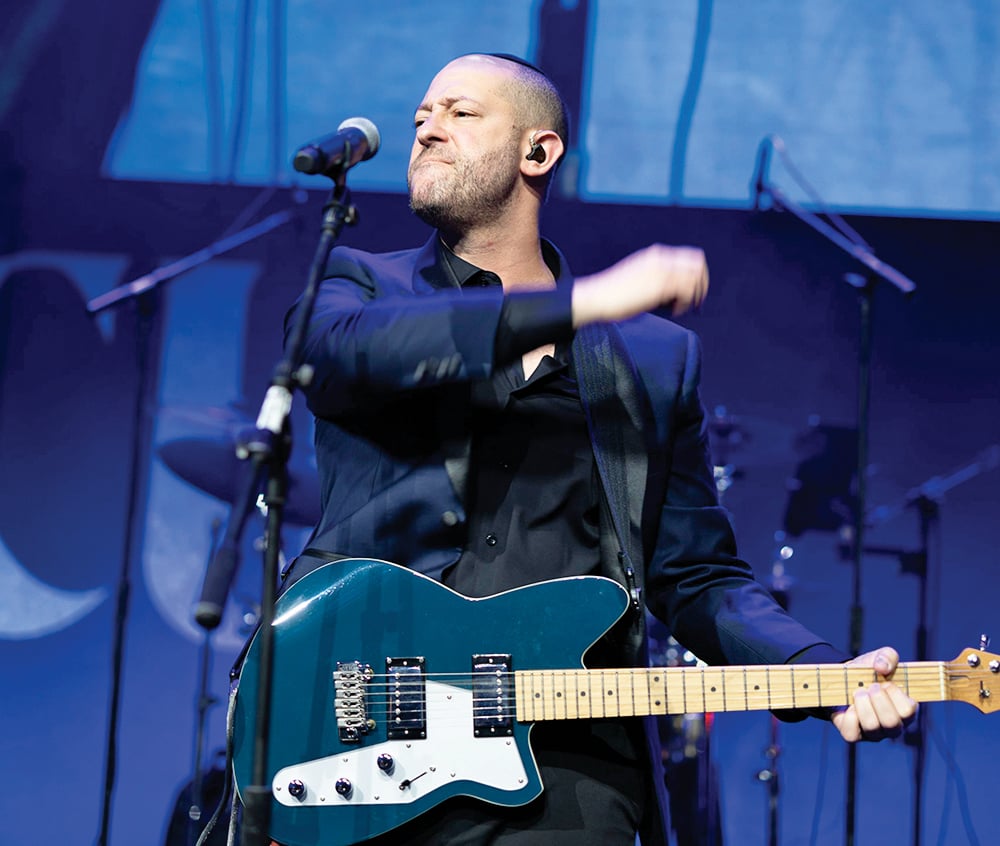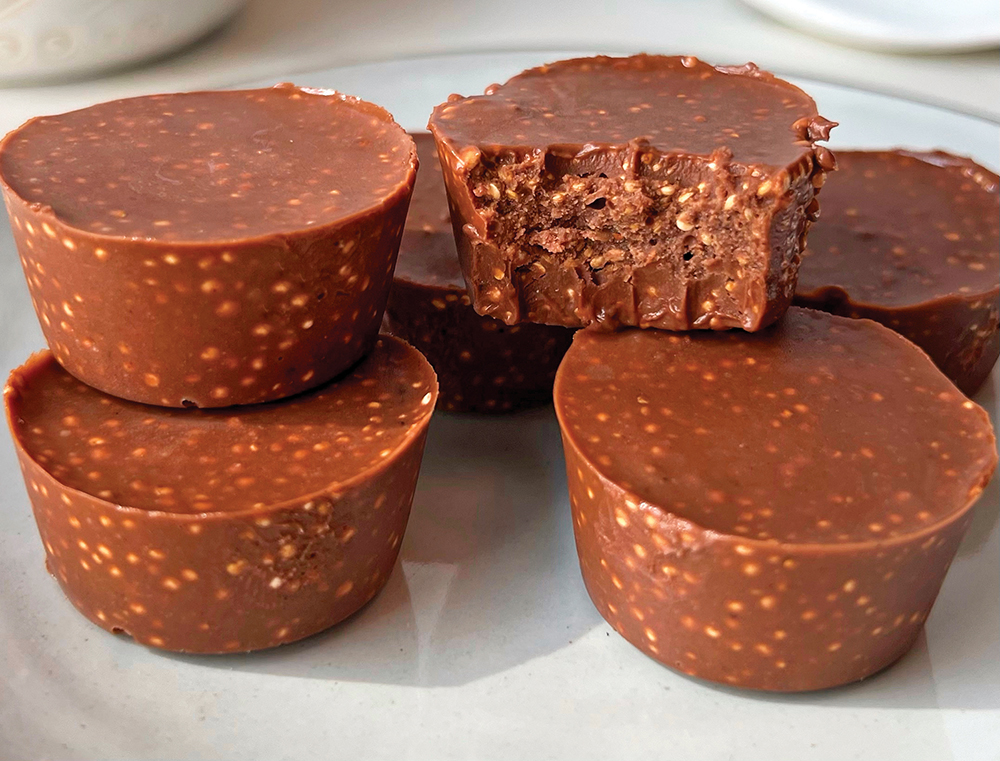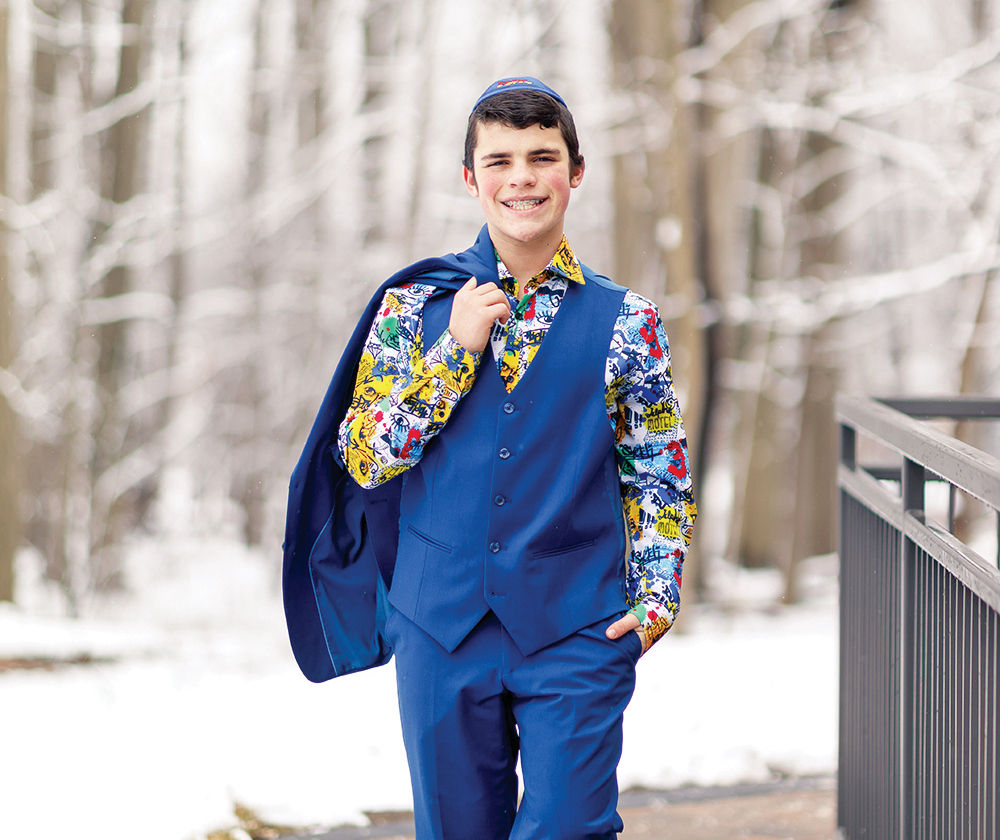A book of women’s prayers from Jerusalem, post October 7, 2023..
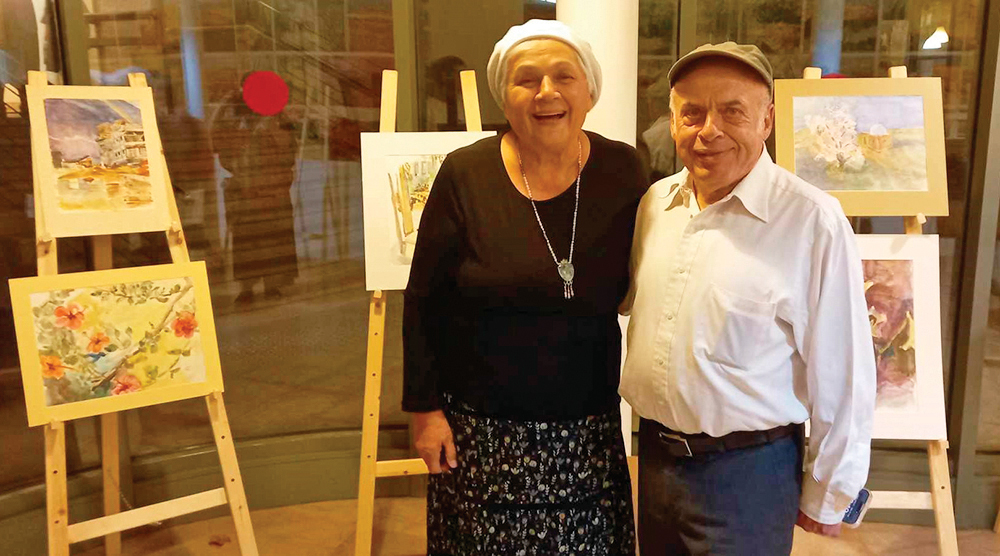
Shira Lankin Sheps awoke on shvi’i shel Pesach (April 29 this year) with “a divine download.” She imagined a booklet of prayers, in English and Hebrew, written by women in the wake of October 7, 2023.
The next day she called Rachel Sharansky Danziger (the daughter of Natan Sharansky) and Anne Gordon, both veteran writers and educators and her weekly writing partners for the past five years, to share her vision. Her dream: to have the publication ready for Rosh Hashanah. Each of them immediately said, “I’m in!”
“When I closed my eyes and saw the image of Miriam with her timbrels and the awestruck faces of the people, elated at their experience of redemption, what spoke to me most was the fact that Miriam and the women were ready for this triumphant moment,” writes Lankin Sheps in her foreword to the book. “I realized that it was time to share this lifeline with other women.”
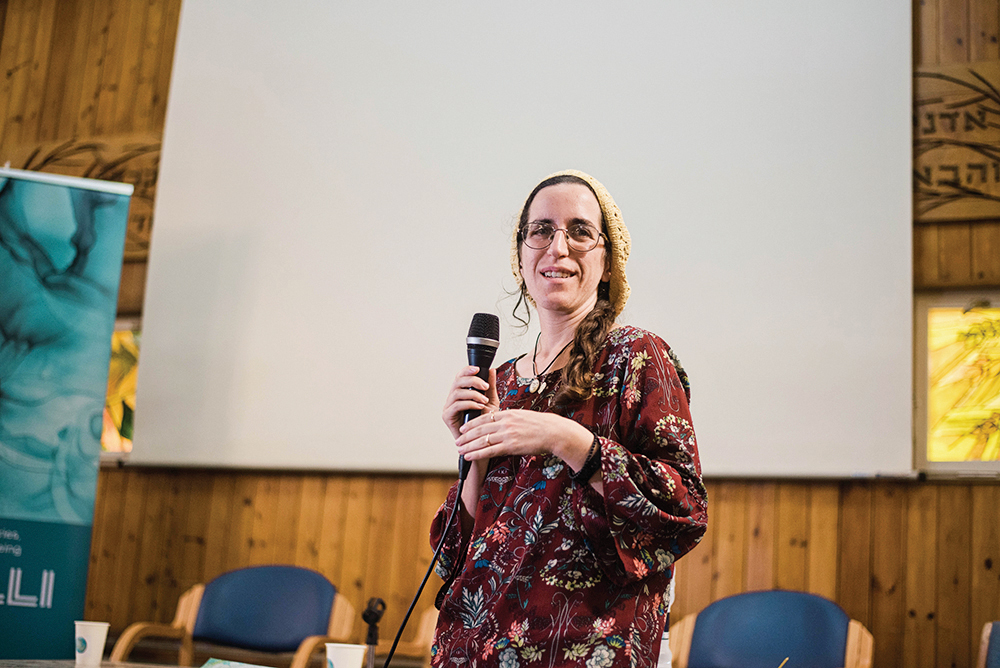
They planned for about 100 pages.
But creativity has a life of its own.
And so, about a week before Rosh Hashanah, “Az Nashir—We Will Sing Again: Women’s Prayers for our Time of Need,” a 505-page book, saw the light of day. It is the first book published by The Layers Press of The Shvilli Center, of which Lankin Sheps is the executive director. She grew up on Long Island, and from the age of 9 lived in New Jersey, first in Highland Park and then in Fair Lawn.
Many of the contributors are well known on the Israeli scene, as writers, poets, authors, educators and creatives in a variety of areas. The book includes 30 full-color pieces of exquisite artwork, also by women, including two by Avital Sharansky, Lankin Sheps’ mother.
There are heartfelt prayers written by women who have sons or daughters or husbands who are soldiers. There are prayers for the land, for the people, for children and for grandchildren (as is my own prayer). There are prayers for brotherhood and for faith, for safety, for mercy, for peace, for healing, for the hostages and for their families.
There are prayers about pregnancy, mikvah and challah. There are prayers for repentance, and prayers for redemption.
One of the writers is Rabbanit Sally Mayer. Before moving to Israel, she was a member of the core faculty that built Ma’ayanot Yeshiva High School for Girls in Teaneck. Today she serves as rosh midrasha at Ohr Torah Stone’s Midreshet Lindenbaum. In her prayer “Please, No More Need for Memorials,” she writes (excerpts):
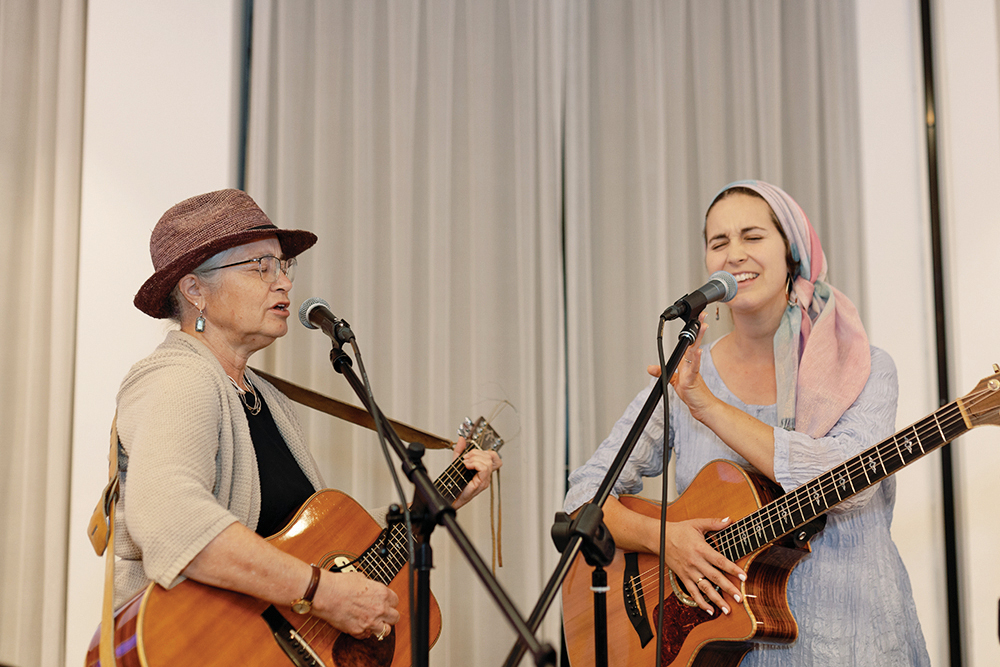
The sticker of him in uniform with his smiling face
With the motto by which he lived
The will from a boy too young to write one
Offering chizuk (strength) from beyond the grave
The poster with her smile, behind it her determination
To rush to help no matter where that led
The dreams he wrote down and carried in his vest
Now ours to live out in his stead…
So many stickers and bookmarks and camps le-zichram (in their memory)
Enough learning projects until mashiach comes…
Please collect all our tears and have mercy
And please, please, no more need for memorials.
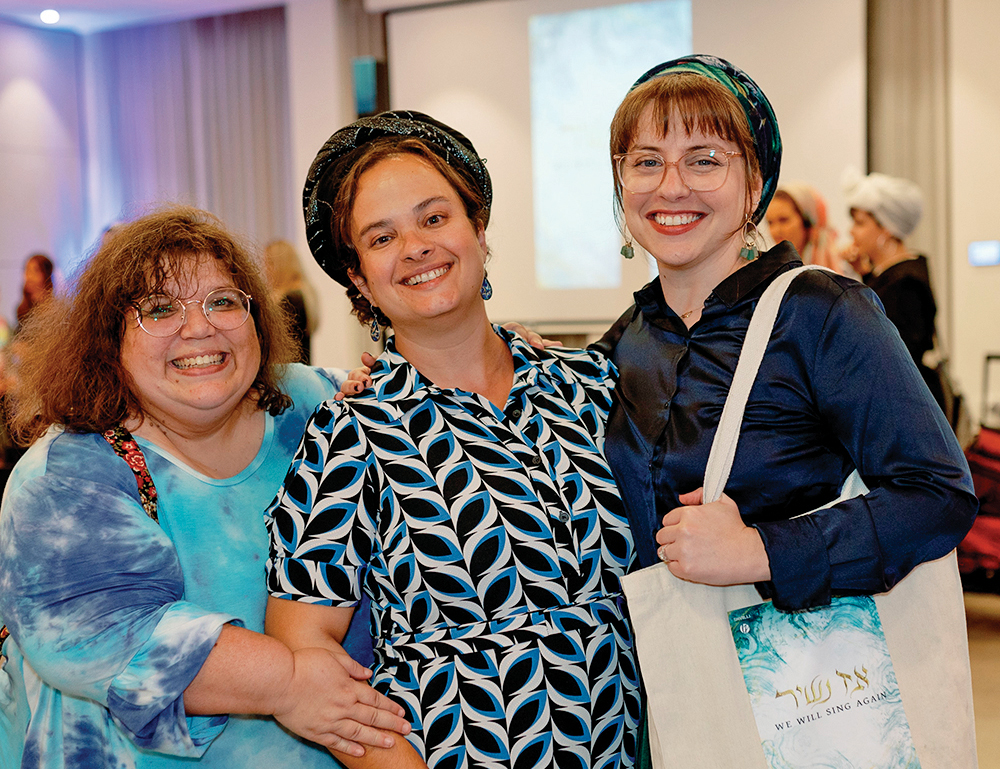
The editors say that the book is meant to be a companion to the siddur and in their introduction note that women wrote prayers through the centuries, from Babylonia to Spain to the techines, starting in the Middle Ages, and Yiddish prayers, many of which were written by women, in their mama-loshen.
A moving, exquisitely executed book launch was held between Rosh Hashanah and Yom Kippur, at the Nefesh B’Nefesh campus in Jerusalem. Almost 400 women filled the hall. The co-editors described their journey, followed by songs appropriate for the Ten Days of Repentance—both haunting and uplifting, some even joyous—headlined by Nina Tokayer (one half of the singing duo Yonina; her husband is Yoni). She also played her own contribution to the book, “God of the Children.”
Rabbanit Batya Hefter sang, with harmonizing by Tokayer, her recently recorded song to the opening words of Psalm 27, “L’David Hashem Ori” (“[A Psalm] of David, The Lord is my light and my salvation, whom should I fear?”) Violinist Ariella Zeitlin Hoffman also performed.
We smiled, we cried, we were inspired.
Lankin Sheps said: “We know the geula [redemption] from Egypt came through righteous women … What can we do to prepare for geula, right now? … We need to sing. We need prayer. We need to be together.”
Danziger said, “We are tying ourselves to … Chana, mother of Shmuel, who said, ‘I’m not accepting reality…’.” She noted that at the end of the “Unetaneh Tokef” tefillah, we say that prayer is one of the three things that can change reality.
Gordon added, “We hope that whatever tears are spilled, whatever hearts are reached … connects us more to Hakadosh Baruch Hu…”
On October 13 an additional launch was held at Yad Ben Zvi, this one in Hebrew, to a mixed-gender audience, that included remarks by Natan Sharansky, who described how he also wrote prayers while he was in prison. His captors tried all kinds of threats and temptations to try to get him to expose other dissidents, and he refused. He wanted his wife and Am Yisrael to also be strong, and wondered how he could speak to his wife and with Am Yisrael. Through prayer. Each time he walked to the interrogation room, he said, “Blessed art thou God, Lord and King of the universe, Give me strength and courage and intelligence and luck and patience to get out of this prison and get to Eretz Yisrael in a straight and proper way.
“Afterwards, someone corrected my grammar of the prayer,” he said, to the audience’s laughter, “but I think God understood me.”
Talia Haber, who grew up in Teaneck, read a heart-wrenching prayer at the Hebrew launch, that she wrote after her husband, Zechariah, z”l, fell in battle (excerpts):
You have to listen, Father of orphans and judge of widows, I am angry, hurt, and lonely.
Please help me raise my children to Torah, the wedding canopy and good deeds…
Please give me the focus to be calm, the courage to laugh, and the humility to pray…
My husband didn’t come home. Please bring the rest of them home: hostages, soldiers, families—bring them back.…
I am sorry I did not pray sooner.
Award-winning author Emuna Elon, a panelist, said that her grandson, Hanoch, who had fought together with Zechariah, was so heartbroken after his death, that he planted a vineyard in the memory of three friends who died in battle, including Zechariah. “The vines are already blooming,” she said.
Lankin Sheps concluded the English launch by reading her own composition, “A Prayer for Mashiach.” (First and last verses):
In the early weeks of the darkest month,
When the moon was blocked by fear,
And our blood was still soaking into the ground,
There were whispers that Your face was hidden…
Please—
Show us Your secret messianic vision
We are ready with our timbrels by the door,
Eager to rush into the streets of Your holy city,
Songs of praise freed from our throats,
Feet flying with dance,
As we usher in a new era.
May the new era come speedily, in our days.
The author is an award-winning journalist and theater director and editor-in-chief of WholeFamily.com. “Az Nashir—We Will Sing Again” can be ordered through Amazon.



